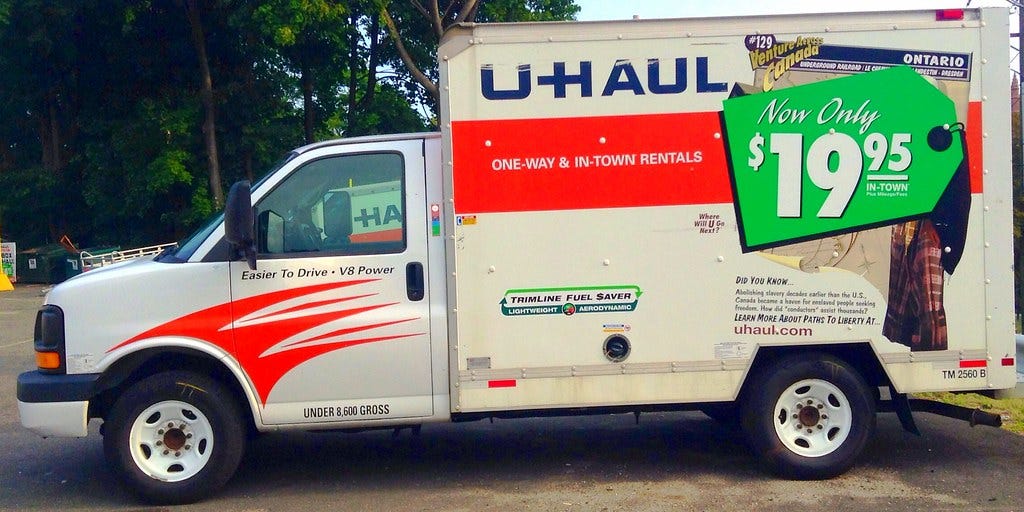Greener Pastures? Make the Most of Where You Are.
As Seneca said, “It is not the shortcomings of the places we go but our own that trouble us.”
I have several friends leaving this great state as their own private protest against Oregon politics or governance. This “strategic retreat” is the reaction from citizens who are frustrated by the unbalanced governing in Oregon. There is, admittedly, a progressive lean to our state and Democrats have generally controlled every branch of government for more than a decade.
Fellow citizens who disagree with the state’s ideological skew and one-party rule have used those attributes as an excuse to move to another state or engage in the quixotic pursuit of changing state boundaries, exemplified by the “Greater Idaho” movement.

Fleeing a blue state for a red state, or vice versa, will exacerbate the polarization we experience and leave us increasingly ill-suited to collectively navigate the coming problems we will inevitably face (and are facing). I don’t downplay the level of political disagreement between some Oregonians but I desire to see us mature beyond an “Us” vs. “Them” mentality.
“Us” may be defined as “Rural Oregonians” or “Portlanders.” It may be those who have agreed with Governor Brown’s actions throughout the pandemic or those who chaffed at her every decision. Regardless of your side of the fence and how you define “us,” this polarization fosters a dangerous tendency to see “them” as an enemy.
If you chase unattainable consensus and ideological uniformity you create in yourself a thin skin, lack of resolve, and inability to deal with future conflict. Rather than fleeing our frustrations, I advise committing ourselves to the courageous acts of deliberating, listening, and leading.
One way to take such an act is to get off social media. The ability of social media to distort our reality is hard to overstate. Sitting on Twitter or Facebook leaves one feeling like the political disagreements of the day are all encompassing, intractable, and resolved only by shouting our outrage into the discourse-free void of a Facebook wall or Twitter feed.
In reality, our political problems are real but not insurmountable. They are solvable with work and patience. The social media “solution” to air one’s grievances relieves the emotional and mental pressure to help your “us” by winning points against a “them.” But those grievances are to the detriment of achieving actual good.
When we trade deliberation for social media, we commit a number of civic sins: We abandon the practical for the pugilistic; we surrender the effective for the ethereal; we turn policy-making and community problem solving into just another online act instead of an in-person opportunity to work with other people in the flesh.
Real change requires daring vulnerability. We cannot solve problems if we do not put down our phones and drop the assumption of moral superiority, and start talking with one another, admitting our lack of omniscience, and our shared capacity for views, answers, opinions, and dignity.
How can you practice effective and virtuous civic culture? Walk across the street: Your neighbors might be people that make living where you live a great thing! Knock on their door and introduce yourself. Join a club or an association. Ask a neighbor, “How are you?” and “What do you care about?” Pursue neighborliness and the beautiful calling of loving your neighbor as yourself.
Will you meet someone who disagrees with you? Undoubtedly. Decide to disagree but remain friendly. This, though good in its own right, creates relationships where neighbors understand each other and can begin to work out ideas that bring in the views of many and lead to more enduring solutions.
Leaving your seat at our collective table should be the very last solution to reviving our civic culture. If you’re really fed up with the way things are, you should engage more, not less! Don’t use your feet to run to another state; Use them to stand for election—run for office!
Every election cycle I see countless races with no challengers yet hear people complain about the people in leadership. Don’t disengage if you feel this way, take ownership and serve. Start by volunteering for an advisory board in your city. Every city and county needs more people willing to give their time and talent to serve their neighbors. The magnitude of influence that can be exerted by just showing up is amazing.
If you don’t like the way the game is going you can throw the table and all the pieces, but that is the response of a child. Take that frustration and do something productive. And, in case it wasn’t clear, moving is not productive.
If you’re searching for a place where everyone agrees with everything you say and do, you’ll never stop looking. Wherever you go, eventually you will still meet neighbors with whom you will disagree. As Seneca said, “It is not the shortcomings of the places we go but our own that trouble us.”
Let’s learn how to live outside of phone screens, to talk with our neighbors, and to serve rather than flee. You can leave this home or you can love this home. Love is the better option. Just remember that love is more than affection, it is action.
Co-host of the City on a Hill Podcast. He has lived in Oregon for the last 25 years and currently resides in West Linn. Perennial city/county advisory board member. Neighbor.

